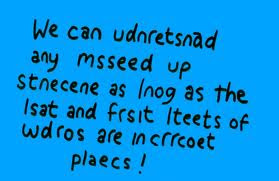Humor vividly increases our recall of visual images to extraordinarily high levels of accuracy. Be this a psychological, medical, or energetic phenomenon, the ability to recall images, sounds, or objects in memory with extreme precision establishes humor as a valuable commodity.
Reaching out for the humor wave allows us to recall sensory information that is visual, auditory, tactile, gustatory, and olfactory. While humorous imagery is indeed a large portion of information perceived in our present bioenergetic configuration, it is only one type of memory shift. The potential for other shifts is, at present, less explored than those shifts belonging to humorous visual imagery; however, with increased duration and frequency of exposure to other humorous stimuli as well as conscious observation and analysis of its relevancy, new areas of humor could emerge.
There are distinct differences in the manner in which information is processed. When processed from a serious place, a serious overtone and inclination distorts moments toward a specific trajectory. This distortion is often times perceived as "negative" or "uncomfortable".
When information is processed from a less serious, more relaxed, poised for "positive" stimuli, it is often perceived as "fun" or "lively" or "entertaining" as well as interesting, exacting, or naturally stimulating.
The frequency of shifts is higher pitched, resulting in distinct differences in the manner in which information is processed. The shifts that occur in humorous situations allow us to retain information pertaining to one of these moments a little longer. The longer our exposure to humorous stimuli, the longer our constant and total recall of all events.
The existence of extraordinary memory skills is reasonably well-documented, and appears to result from a combination of innate skills, learned tactics, and extraordinary knowledge bases (seers of energie particles and strands, who first make energetic connections, understand how information connects by match the corresponding information frequency with its event).
If you include into the matrix humor, a wave of unprocessed sensory memory of raw sensory events (automatic perceptual processing) instantly becomes available during the pause moment that occurs whilst your brain instantly recognizes an incongruence it defines as humorous (even if only for the mere fact that an incongruence can exist).
It is no surprise that humor allows us to recall a surprising amount of information, far more than we do when recanting serious events (this is well-documented by various government agencies). When presented with arrangements pertaining to serious moments, recall, surprisingly, drops. The energetic equivalent is weaker bonds due to the energetic and physical energy required to maintain cohesion under stress. Where lattice work, vibrancy and waves once existed with clearly defined paths and arrangements, only random opaque surrounding dot patterns remain visible.
This is what seriousness feels like to me. Humor allows me to organize more effectively more types of information. Natural connections are enhanced by humorous stimuli, where a purposeful search for humor could be associated with the method of loci (mneumonic) device introduced in Cicero's De Oratore.
Cicero's De Oratore
When searching for humorous connections, spatial relationships that establish, order and recall memorial content is, with frequency of association, eventually memorized. This method of humorous memory enhancement, which uses visualization to organize and recall information, seems to be similar in technique to how stand-up comedians recall or recognize humorous events for an audience. The comedian or comedienne goes into a "zone" in which they are walking through a humorous memory - whereas an untrained comedian describes the experience of being onstage as being "put on the spot", especially when someone says, "Tell us a joke," and they can't recall one off their heads.
It would be interesting to design a competition whereby contestants must instantly recognize humor in an otherwise perceived as nonhumorous event. The audience, while listening to the contestants explanation of where the humor lies, could vote "yes" they see it or "no" they don't, the contestant who accumulates the most amount of "yes's" wins! In this way, humor could be explained and perceived as funny at the same time (most humor explanations aren't funny, per se, but funny interesting).
Of course, method of loci could be reversed so that that you could forget humorous events associated with words and graphic images, but fewer people would think of this and fewer still would consciously choose to do so given the positive sensations we associate with humorous stimuli.
I wonder if Elizabeth associated those dots Charles Stromeyer III showed her with Pacman. If she did, it might shed more light on how she was able to fuse images to form a random-dot stereogram before associating it with a three-dimensional image. At this point, over a billion people on the planet can do this when they see any shape that resembles Pacman.
The character, Shawn Spencer, on the television show Psych demonstrates what an extraordinary memory might look like. He pretends to be a "psychic detective" rather than admit that his long-term memory skills are equally linked to the games his father encouraged him to play as a child in order to develop extraordinary detective-type skills so that he could someday follow in his law enforcement footsteps.
Neurologically speaking, humor could aid in synaptic plasticity, the ability of the brain to forge (humorous) connections or synapses between two neurons, allowing them to strengthen or weaken in response to use or disuse over specific pathways. This purposeful alteration of the number of receptors located on a synapse could result in enhance memory recall, allowing cells to respond quicker to neurotransmitters.
Note: It might prove prudent to have a glass of milk with your morning funnies or comics given synaptic plasticity in both excitatory and inhibitory synapses has been found to be dependent upon calcium(1).
Accordingly, this video should be perceived as hilarious:
Milk... It does a sense of humor good












No comments:
Post a Comment